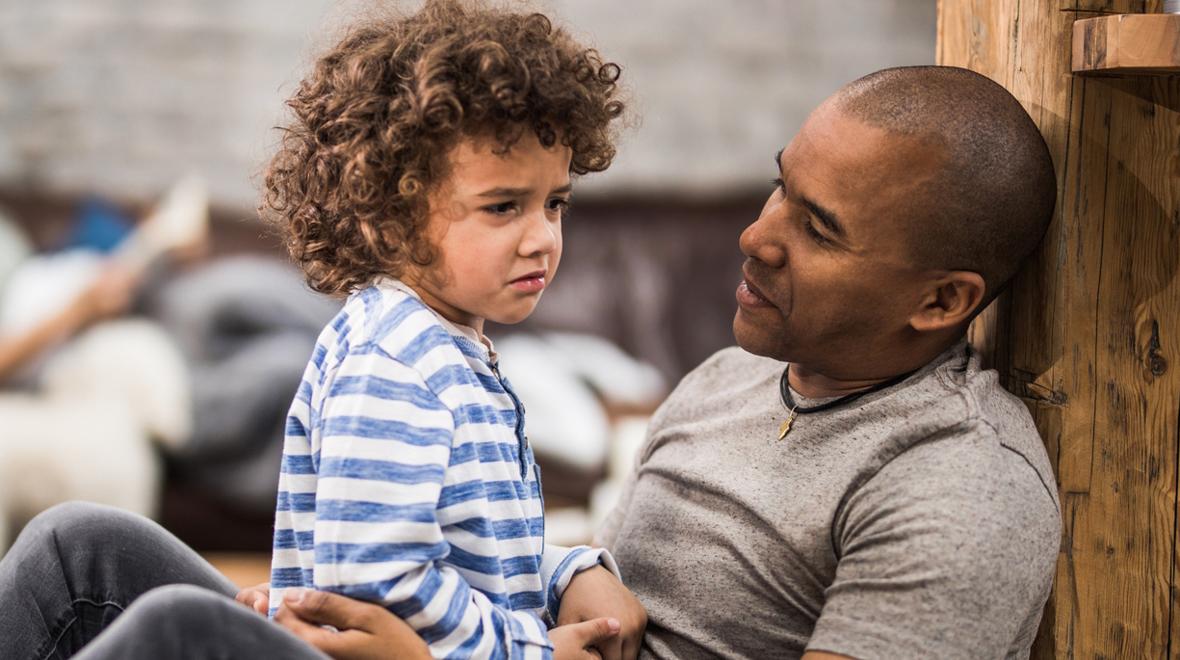
Photo:
iStock
Challenging behavior in children is nothing new and each generation has struggled with how to handle it. We constantly hear about new tactics for dealing with bad behavior, ranging from extreme behavior management methods to somewhat lax strategies. But what if I told you that there is a really simple solution to dealing with your child’s problem behavior? Well, science says there is.
Researchers from Cardiff University, University of Oxford, University of Amsterdam and Utrecht University wanted to find out which strategies had been scientifically proven to reduce disruptive behavior in children.
The researchers looked at more than 156 studies that focused on the disruptive behavior of children, ages 2–10 years old. They wanted to identify the parenting programs that were the most effective in dealing with disruptive child behavior. More than 15,000 families in over 20 countries participated in the study. Among the behavior issues identified were frequent temper tantrums, excessive arguing, deliberate attempts to upset others and uncooperative behavior. This is what they found:
Focus on positive behavior.
Do you know which teachers have the most cooperative students? The ones who focus on their students’ positive behavior. Positive reinforcement works. The token economy system is one of the most effective discipline management techniques, simply because it focuses on “catching students being good.” We now know that the more children receive positive feedback with regard to a specific behavior, the higher the chances are that the behavior will be repeated.
What you can do: Bribing your child to cease an inappropriate behavior (“I’ll give you a cookie if you go back to bed.”) is a terrible idea. Rewarding disruptive behavior reinforces that behavior. What you need to do to is to reinforce positive behavior by focusing on the behavior you expect from your child. Let your child know what is expected of them, and then praise that specific behavior every time it is displayed.
Use adequate, nonviolent disciplining techniques.
Despite popular belief, punishing your child rarely leads to positive behavior change. What does help is using appropriate nonviolent discipline methods the right way. While discipline teaches your child about appropriate behavior, punishment does not.
According to the Paediatrics & Child Health Journal, effective disciplinary methods share six characteristics:
- They must be given by an adult with an affective bond to the child.
- They must be consistent and close to the behavior needing change.
- They must be perceived as “fair” by the child.
- They must be age-appropriate.
- They must be temperamentally appropriate.
- They must lead to self-discipline.
What you can do: There are so many nonviolent discipline strategies to choose from. Get informed about them and try out different ones if you have to. The one thing you need to remember about dealing with your child’s inappropriate behavior is that love and discipline go together.
Build a strong relationship with your child.
Several research studies suggest that most of children’s behavioral issues result from a weak parent-child relationship. They argue that the more you enjoy a positive relationship with your child, the easier it is to correct disruptive behavior. This is because your kid is more likely to value positive feedback if you have a strong parent-child relationship.
What you can do: Being a “sensitive parent” is one of the most effective ways of building strong bonds with your child. It simply means being attentive to your child’s emotional and physical needs and knowing how to respond to them appropriately. Sensitive parenting also involves being empathetic and accepting to see things from your child’s perspective.
Spending quality time with your child is also an easy way to strengthen the parent-child bond. Coming up with special routines can make it easier to schedule activities to do with your child. Adopting weekly family traditions that involve the entire family is also a great way to reinforce your family’s bonds and improve your parent-child relationship.
Different families need different strategies to deal with problem behavior in their children.
The cited study found that when parents learned relationship-enhancing skills and behavior management skills, they were better prepared to reduce their children’s disruptive behavior, but only if their children already displayed problem behavior. In other words, what is effective for one family may prove completely ineffective for another.
What you can do: Do not get caught up in the latest “best discipline strategy.” Remember that a behavior strategy can only be effective if it is aligned with your personality and your child’s personality. One strategy that works with one of your kids will not necessarily work with another, so employ what works best for each of your children. If necessary, get help to determine the best strategy for your family.
One of the key lessons from the available research is that when you are dealing with your child’s disruptive behavior, building a strong parent-child relationship has the potential to radically change your child’s behavior.
More parenting resources for raising great kids: |
Editor’s note: This article was first published several years ago and updated most recently on April 29, 2025, by ParentMap’s associate editor Kari Hanson, with a fact-check.











